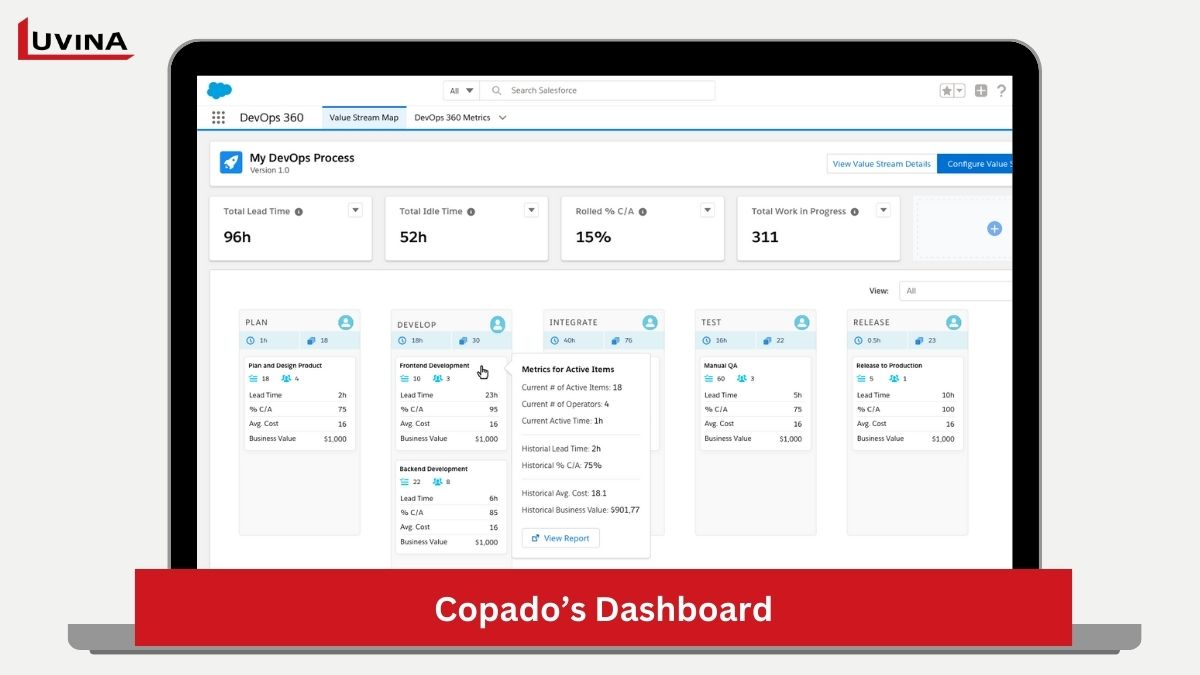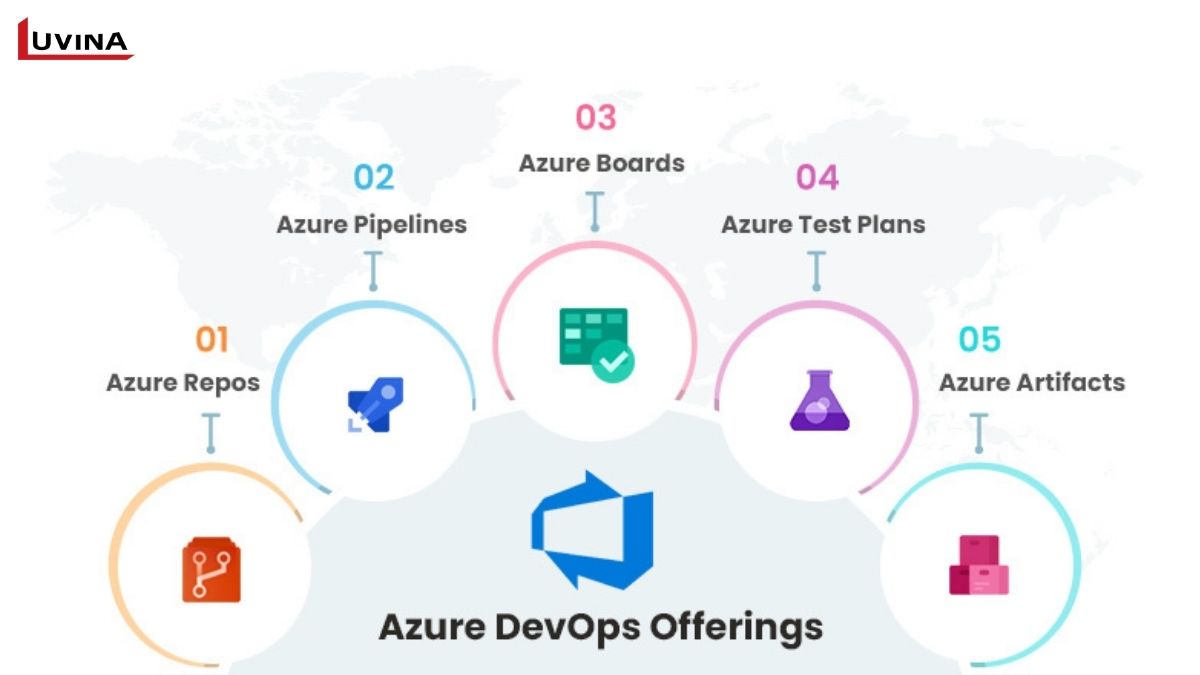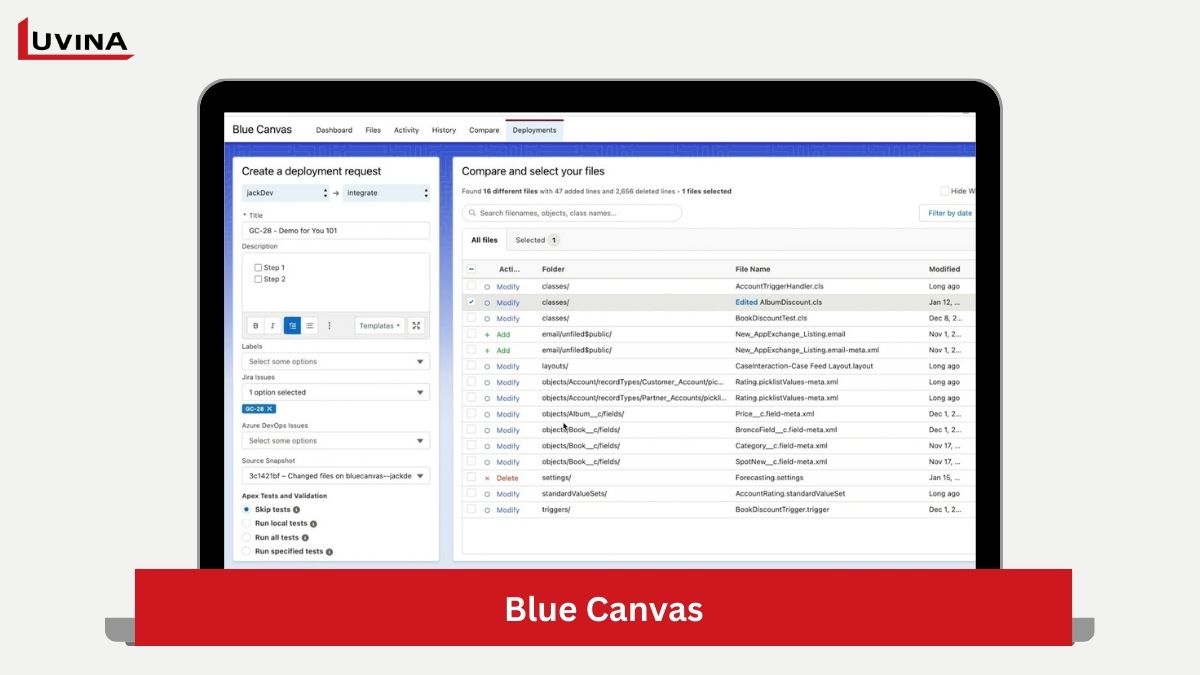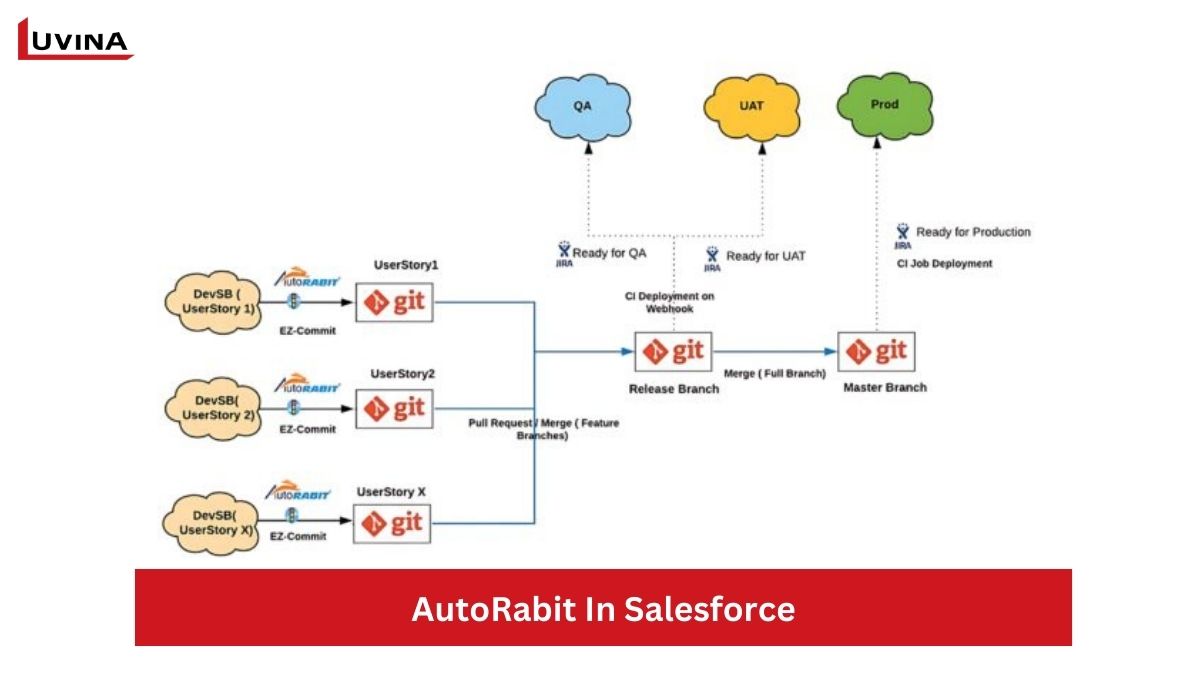Salesforce DevOps products are gaining more traction than before, having been dubbed the secret to bridging the gap between development and operations teams. Through the improvement of specialized cooperation, these tools enable a more efficient and seamless development process.
However, selecting the appropriate Salesforce DevOps tools is crucial to achieving this objective. Let’s read this post to learn about the top Salesforce DevOps tools.
Role of DevOps in Salesforce development
DevOps is essential to Salesforce development teams’ ability to provide users with greater features and promptly resolve problems. DevOps also speeds up the process of creating new features and improving security. DevOps’ automation function also helps developers save a ton of time.

Salesforce DevOps tools in 2024 come in various classifications. However, the common characteristics of all DevOps software in Salesforce development still include:
- – Facilitating safe deployment processes.
- – Controlling release time.
- – Minimizing errors.
- – Enhancing collaboration among project members.
Top 10 Salesforce DevOps Tools
In addition to accelerating development speed, Salesforce DevOps tools also help generate higher-quality code and improve security. If you’re looking for DevOps tools in Salesforce, consider some suggestions below and decide which tool best suits your business needs.
1. Native Tools
Native tools are Salesforce DevOps tools that can be used within Salesforce. Here are some popular ones.
Salesforce DevOps Center
- – Features: Software testing, automated change tracking, deploying changes, metadata sources, pipelines,…
- – Pros: A centralized platform, fully integrated toolset, user-friendly interface, easy-to-use tools
- – Cons: Not highly functional, not suitable for large enterprises with complex needs.
- – Price: Free
Salesforce DevOps Center is a popular choice among many businesses for Salesforce DevOps tools because it’s free, has a native platform, and can handle various tasks effectively. This tool can help development teams manage version control, continuous integration, automate manual tasks, and more. All features are centralized in one platform, making application lifecycle management easier.
Copado
- – Features: Automated testing, compliance, security, release management, compliance tracking, test automation,…
- – Pros: User-friendly interface, diverse features, easy to use, easy integration with other tools.
- – Cons: Quite expensive, slightly complex.
- – Price: $250/user/month

With over 1,400 customers and more than 90,000 community members, Copado is regarded as one of the most flexible and powerful Salesforce DevOps tools. This tool empowers Salesforce developers to plan, test, and deploy applications quickly by unifying CI/CD processes and automated testing on one platform.
Flosum
- – Features: Data deployment, version control for data, deployment groups
- – Pros: Native version control, can support complex deployment needs
- – Cons: Limited support for non-Salesforce development processes
- – Price: $300/user/month
Flosum is highly regarded as one of the best Salesforce DevOps tools, capable of handling the entire development lifecycle. This tool not only enhances version control but also optimizes security and can handle Salesforce Lightning. Additionally, it features built-in CI/CD, and ALM, making it ideal for those who want to stay within the Salesforce ecosystem.
2. Custom Build
Salesforce DevOps tools categorized as Custom Build allow you to build your tools using various CI/CD platforms. Here are some Salesforce DevOps tools in this category:
Jenkins
- – Features: Jenkinsfile, free open source, workflow plugin,…
- – Pros: Flexible, customizable, supports multiple plugins.
- – Cons: Requires infrastructure maintenance, requires time to learn and master.
- – Price: Free
Jenkins is considered the “savior” of developers with its ability to continuously develop, test, and deploy new code, speeding up the software distribution process. Particularly, thanks to its plugins, Jenkins can integrate with any existing DevOps tool.
Azure DevOps
- – Features: Dashboard control, enhanced source control, track, and plan work, continuous integration and deployment (CI/CD),…
- – Pros: Scalability, automation, high security, cost-effectiveness
- – Cons: Limited support, limited customization, and a training process that requires significant effort and money.
- – Price: from $5 to $52 per user per month

Azure DevOps is one of the most widely used Salesforce DevOps tools by developers. This tool can encompass the entire application lifecycle, helping teams manage tasks and projects better and accelerate software development speed.
Similar to other Salesforce DevOps tools, Azure DevOps enhances team collaboration, eliminates manual tasks, and minimizes potential service disruptions.
Gitlab Actions
- – Features: Actions, GitHub Apps, GitHub Pages, code scanning, deployment options,…
- – Pros: Automation, tight integration with GitHub, and enhanced collaboration.
- – Cons: Limited free CI/CD time, challenging to use, requires a significant amount of time for learning and becoming familiar with.
- – Price: Up to $99/month
GitLab Actions is a powerful platform that simplifies and accelerates the application development and deployment process. With GitLab Actions, developers can produce better code, and move faster while ensuring integrity and data security. Utilizing Salesforce DevOps tools like GitLab Actions helps projects achieve efficiency and cost savings.
GitHub pipelines
- – Features: Integrated CI/CD, project management tools, deployment options
- – Pros: Comprehensive DevOps platform, full-featured
- – Cons: UI complexity, resource-intensive for small projects
- – Price: NA
GitHub Actions, similar to GitLab Actions, offers a familiar interface for those accustomed to using GitHub. Its greatest advantage lies in its extensive documentation on workflows, enabling developers to easily create automated processes tailored to business requirements.
Blue Canvas
- – Features: Sandbox management, API, automated source control, checklists for keeping track of manual tasks
- – Pros: Enhanced collaboration capabilities, pre-build automation, and a dedicated version control system for Salesforce metadata.
- – Cons: Limited integration options, limited customer support, and limited customization.
- – Price: $150/user/month
Blue Canvas is one of the DevOps tools for Salesforce, designed with a developer-friendly interface. Its main strength lies in its automatic organization synchronization feature, which allows administrators to directly make changes in higher-level organizations without worrying about version control synchronization.
Moreover, Blue Canvas also provides an API that can be extended and integrated with other tools.

3. Other Tools
Besides native and custom-built tools, there are still many Salesforce DevOps tools that do not originate from Salesforce but can still facilitate DevOps deployment. Here are some examples:
Gearset
- – Features: Automated testing, impact analysis, data comparison,…
- – Pros: Easy installation, user-friendly, feature-rich, friendly interface, simple configuration.
- – Cons: Limited integration; does not include all Salesforce features.
- – Price: $200/user/month
Gearset is one of the best Salesforce DevOps tools that provides powerful solutions for deploying metadata, backups, sandbox creation, CI/CD, and automated testing. This tool offers automation features to monitor all changes, schedule deployments, backups, and more. With the assistance of Gearset, thousands of Salesforce experts have conducted millions of deployments, backups, and automated tests.
AutoRabit
- – Features: Encryption, backup log, secure data storage, cloud backup, remote server options…
- – Pros: Automation, high security.
- – Cons: Complex configuration, difficult installation.
- – Price: Custom pricing only
AutoRABIT is a comprehensive DevOps tool highly reputable in the Salesforce ecosystem. With features such as AutoRABIT ARM, AutoRABIT Vault Data Backup & Recovery, AutoRABIT provides fully automated solutions ranging from CI/CD, version control, sandbox management, testing, and more. This tool also offers CodeScan to ensure code quality consistency and compliance with internal standards by administrators and developers.
Moreover, AutoRABIT can instantly backup and restore data, metadata, and attachments, ensuring the integrity of the Salesforce environment even during testing.

Summary
To successfully deploy a complex DevOps project, what you likely need are suitable Salesforce DevOps tools. These tools are invaluable for developers and operations teams, facilitating easy management of the software lifecycle.
If you aim for swift, less error-prone, and higher-quality Salesforce deployments, leveraging the best Salesforce DevOps tools can bring you closer to achieving your goal of positioning your business at the forefront.
If you’re seeking advice on Salesforce DevOps tools or looking for a collaborative partner to implement Salesforce DevOps, don’t hesitate to reach out to Luvina for assistance.








Read More From Us?
Sign up for our newsletter
Read More From Us?
Sign up for our newsletter